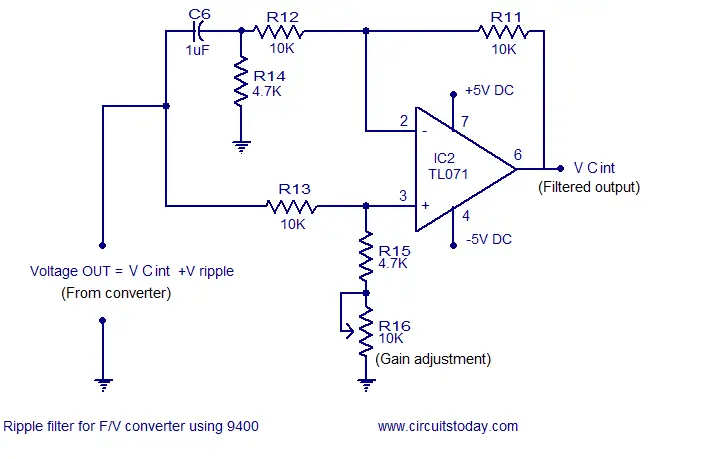Frequency to Voltage converter circuit based on the TC9400 IC Circuit Diagram
BlogFrequency to Voltage converter circuit based on the TC9400 IC Circuit Diagram The project goal is to design an embedded system (hardware/firmware) that takes in a frequency input signal. Maybe from a motor encoder or whatever and measure the frequency then convert it to analog voltage signal at the output. Of course, F/V converter integrated circuits (ICs) and other solutions are viable options indeed.

At its core, a frequency to voltage converter circuit diagram is relatively simple, and consists of three basic components: an oscillator, an amplifier, and a rectifier. The oscillator is responsible for generating the high frequency signal that will be converted.
PDF Configuring a Frequency to Voltage Converter Circuit Diagram
A Simple LM331 Based Frequency to Voltage Converter Circuit is an easy and efficient way to measure frequency and turn it into voltage. This circuit works great for things like speed sensors, tachometers and systems that control industrial processes. You can tweak the output voltage to fit your needs by changing the values of R4 and C2.

Here is a very simple circuit diagram of a frequency to voltage (F to V) converter. Such a circuit finds numerous applications in projects like digital frequency meters, tachometers etc. The circuit is mainly based on a LM555 timer IC. The IC is wired in mono shot mode to convert the input frequency into a fixed pulse width, variable frequency

F to V Converter Circuit using LM555 Timer IC Circuit Diagram
IC LM331 Family of Voltage to Frequency and Frequency to Voltage converters are ideally suited for use in simple low cost circuits and applications like, analog to digital conversion, precision frequency to voltage conversion, linear frequency modulation or demodulation, and many other functions.
